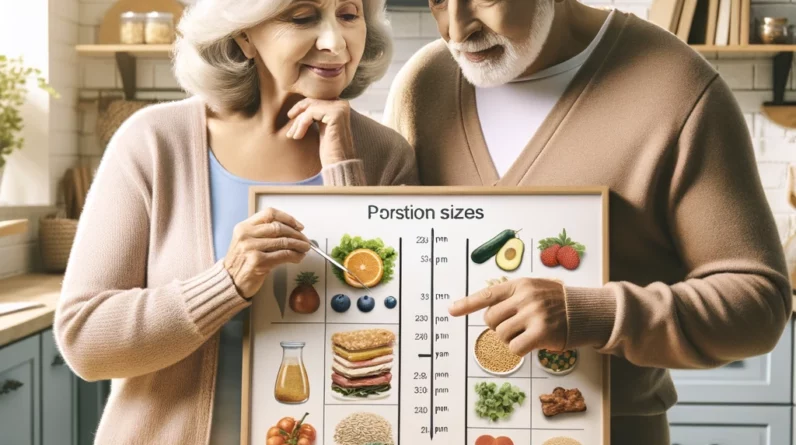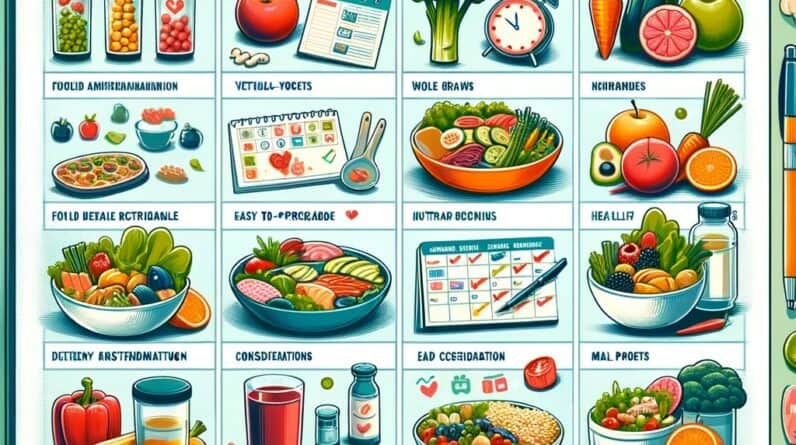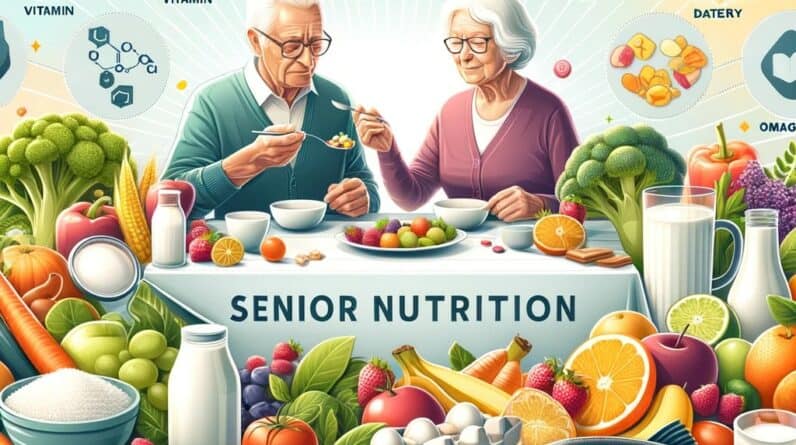Understanding the Shift in Nutritional Needs with Age
Balancing Nutritional Needs As You Age – Expert insights from geriatricians on age-related metabolic changes
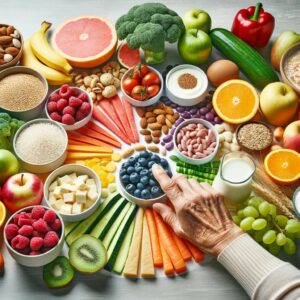

Dementia Discovery That is Leaving Doctors Speechless (Try This Tonight)
Better than Morphine For Joint Pain… Yet Safer Than Aspirin?
Retire With Freedom. Start Earning Extra Cash Today.
Geriatricians highlight that as we age, our bodies undergo significant metabolic changes that impact nutritional needs. A slowing metabolism, changes in taste and smell, and decreased digestive efficiency are common. These factors contribute to altered energy requirements and nutrient absorption capabilities.
For instance, older adults might require fewer calories due to a less active lifestyle, but their need for certain nutrients like calcium, vitamin D, and B12 may increase. Geriatricians stress the importance of understanding these changes to prevent malnutrition and maintain overall health in the aging population.
How nutritionists and dietitians adapt dietary plans to cater to seniors
Nutritionists and dietitians play a crucial role in tailoring dietary plans for seniors, accounting for individual health conditions, medication interactions, and lifestyle.
They often recommend smaller, nutrient-rich meals that are easier to digest and meet the specific nutritional needs without overburdening the metabolism.
These professionals also consider factors like dental health, hand dexterity, and the ability to shop or prepare meals, offering solutions like softer food options or meal delivery services to ensure a balanced diet.
The role nutrient-dense foods play in maintaining health in older adults
Nutrient-dense foods are pivotal in the diets of older adults. These foods provide high levels of essential nutrients relative to their calorie content, helping to meet nutritional needs without excessive calorie intake.
This approach is particularly beneficial for seniors who may have reduced appetites or face challenges in consuming large quantities of food.
Foods like lean meats, fish, eggs, dairy products, fruits, vegetables, and whole grains are emphasized for their ability to deliver vitamins, minerals, and fiber crucial for maintaining muscle mass, bone health, and overall vitality.
Navigating Dietary Modifications for Age-Related Health Conditions
The collaboration between healthcare providers and caregivers for tailored nutrition
Effective management of age-related health conditions often requires a collaborative approach to nutrition, involving healthcare providers, dietitians, and caregivers.
Conditions like diabetes, heart disease, and osteoporosis necessitate specific dietary adjustments.
Healthcare providers can identify these needs and work with dietitians to develop a customized eating plan.
Caregivers play a key role in implementing these plans, ensuring that dietary recommendations are followed and adjusting meal preparation and feeding practices as needed.
Different dietary philosophies and their impacts on elderly health
Various dietary philosophies, such as the Mediterranean diet, DASH diet, or plant-based diets, can significantly impact elderly health.
Each dietary approach has its benefits; for instance, the Mediterranean diet is lauded for its heart-healthy fats and emphasis on whole foods, which can be advantageous for seniors with cardiovascular concerns.
It’s essential to evaluate these diets in the context of individual health needs, preferences, and cultural backgrounds to ensure they provide the necessary nutrients while promoting overall well-being and quality of life.
Incorporating advice from research institutions for condition-specific diets
Research institutions continuously provide insights into optimal dietary practices for managing specific age-related conditions.
By staying abreast of the latest research, nutritionists and healthcare providers can offer evidence-based dietary recommendations that are tailored to individual health conditions.
For instance, studies on the role of omega-3 fatty acids in cognitive health can inform dietary adjustments for seniors with cognitive impairments.
Incorporating this research-backed advice ensures that dietary modifications are both scientifically sound and highly effective in managing health conditions.
The Importance of Hydration and Community Support for Elderly Nutrition
Senior community centers and health and wellness organizations promoting hydration
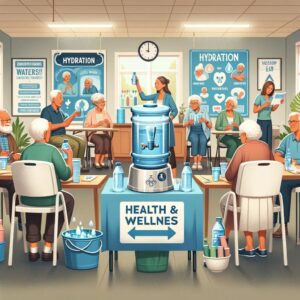
Senior community centers and health organizations emphasize the importance of hydration for older adults, who are often at a higher risk of dehydration due to factors like reduced kidney function and a diminished sense of thirst.
These centers conduct educational sessions and activities that encourage regular fluid intake and educate seniors on recognizing signs of dehydration.
Offering water-rich foods, like fruits and soups, and providing easy access to water and other hydrating beverages are common strategies used to promote adequate hydration.
Community health centers and rehabilitation centers as resources for hydration education
Community health and rehabilitation centers play a vital role in educating elderly individuals about the importance of staying hydrated.
They provide resources and guidance on how to integrate sufficient fluid intake into daily routines, especially for those with health conditions that may affect hydration needs, like diabetes or kidney disease.
These centers often collaborate with dietitians and healthcare professionals to develop personalized hydration strategies, ensuring that each individual’s unique health requirements are met.
Senior living communities and caregivers ensuring access to water and other hydrating options
In senior living communities, caregivers are instrumental in ensuring residents have regular access to water and other hydrating options.
They are trained to recognize the signs of dehydration and understand the specific hydration needs of the elderly.
Caregivers encourage residents to drink fluids throughout the day and provide assistance as needed. Hydration stations, reminders, and offering a variety of appealing drinks are some of the methods used to promote hydration.
Leveraging Technological and Educational Tools for Senior Nutrition
Nutritional assessment tools for the elderly and how they aid in balanced diets
Nutritional assessment tools are invaluable in developing balanced diets for seniors.
These tools, ranging from simple dietary surveys to sophisticated software that analyzes nutrient intake, help identify nutritional gaps and excesses in an elderly person’s diet.
Dietitians and healthcare providers use these assessments to tailor dietary recommendations, ensuring that seniors receive the right balance of macronutrients, vitamins, and minerals essential for their age and health conditions.
The role of dietary tracking apps with age-specific features in monitoring eating habits
Dietary tracking apps with age-specific features are becoming increasingly popular among seniors and their caregivers.
These apps allow for easy monitoring of food intake, hydration levels, and nutritional balance.
They can be particularly helpful for managing chronic conditions like diabetes or hypertension by tracking specific nutrients such as sugar and sodium intake.
The user-friendly interfaces of these apps are designed with the elderly in mind, often incorporating larger text, simple navigation, and voice commands.
Nutritional workshops, cookbooks, and portion control tools for informed food choices
Nutritional workshops and cookbooks tailored for seniors provide valuable education on making informed food choices.
These resources often include recipes that are both nutritious and easy to prepare, considering common challenges like limited mobility or reduced taste sensation.
Portion control tools are also emphasized, as they help seniors to maintain a healthy weight and consume a balanced diet.
Workshops and educational materials often address topics like reading nutrition labels, meal planning, and adapting favorite recipes to be more healthful.
The Evolving Landscape of Nutritional Care in Senior Populations
Predictions on the rise of personalized nutrition plans and tailored supplement use
The future of nutritional care for seniors is likely to see a significant shift towards personalized nutrition plans and tailored supplement use.
Advances in medical science and technology will enable more precise nutrition recommendations based on individual genetic profiles, lifestyle factors, and specific health conditions.
Personalized supplements, designed to address unique nutritional deficiencies or support specific health concerns, are expected to become more prevalent, offering targeted support to enhance the health and well-being of the elderly.
The future of elderly dietary recommendations in the age of nutrigenomics
Nutrigenomics, the study of the relationship between genetics, nutrition, and health, is poised to revolutionize elderly dietary recommendations.
As understanding of genetic factors in nutrition and aging deepens, dietary guidelines for seniors are expected to become increasingly customized.
This could lead to more effective management of age-related conditions through diet and a better understanding of how certain foods can optimize health and longevity based on individual genetic profiles.
Anticipated trends in plant-based eating and sustainable diets among the elderly
An emerging trend in senior nutrition is the growing interest in plant-based eating and sustainable diets.
As awareness of environmental issues and the health benefits of plant-based diets increases, more seniors are expected to embrace this lifestyle.
This shift not only benefits individual health, with increased consumption of fruits, vegetables, and whole grains, but also aligns with broader sustainability goals.
Future dietary programs for seniors are likely to incorporate these trends, balancing health benefits with environmental considerations.
Disclaimer: The information in this article is intended for educational and entertainment purposes only and should not be used instead of or contrary to that of a medical professional.
Before taking supplements, starting a new diet, or embarking on a new exercise regime please consult a medical or nutritional professional.
The owners of “Getting Healthy After 50” are not medical professionals and are simply redistributing information that is freely available on the internet.



